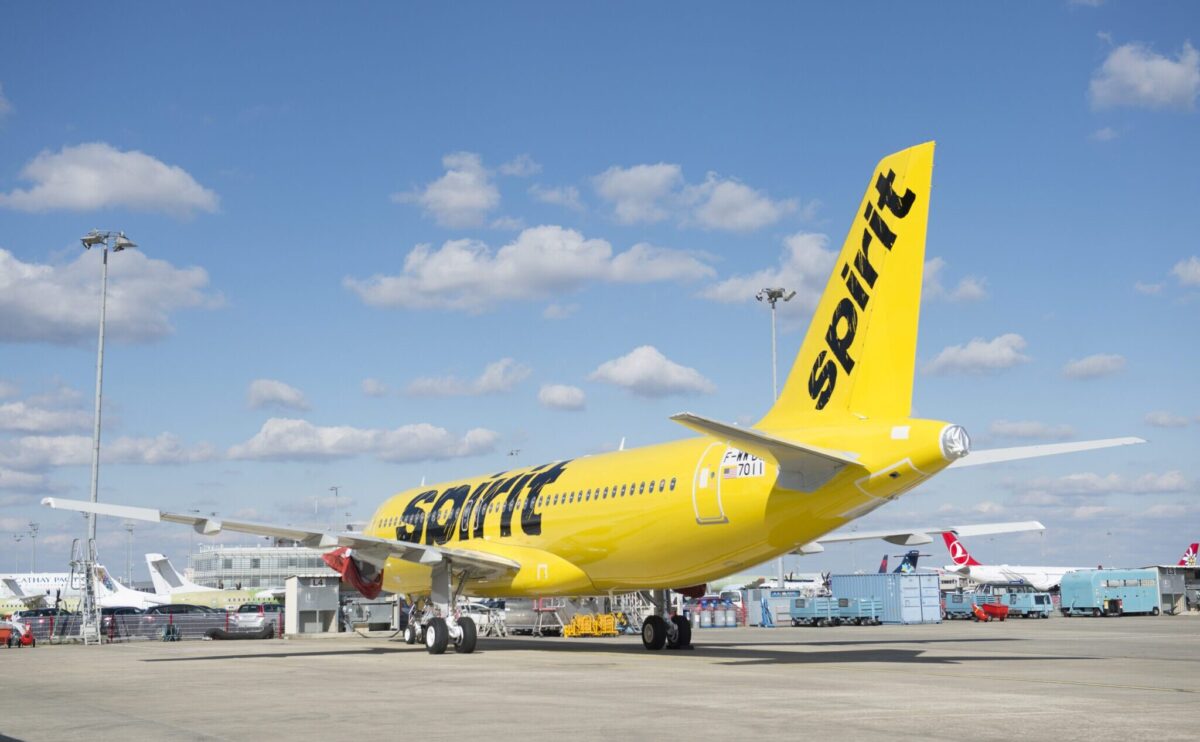Spirit Airlines Lowers Outlook, Cites Weaker Revenue From Fees

Skift Take
Spirit Airlines is anticipating a bigger quarterly loss in the second quarter, citing lower-than-expected ancillary sales.
While Spirit didn’t go into specifics, ancillary fees for perks like checked baggage, carry-ons and seat selection are typically a major revenue driver for ultra-low-cost airlines.
The ultra-low-cost carrier said in a regulatory filing on Tuesday that it expected to report second-quarter revenue of $1.28 billion, down from the previously estimated $1.32 billion to $1.34 billion.
It expects to report an adjusted loss of $173 million to $160 million, a decrease from a loss between $145 million and $120 million.
Spirit also said that ancillary revenues were at $64 per passenger, several dollars less than initially anticipated.
“The Company attributes this underperformance to incremental pressure on ancillary pricing due to changes in the competitive marketplace,” Spirit said in the filing.
Following Frontier Airlines, Spirit recently dropped most change and cancellation fees. Executives at the airline have also hinted at implementing changes to the business model, but haven’t offered any details.
A Tough Time for Spirit
Since the pandemic, Spirit hasn’t been able to turn a profit. Softer demand for its product, a surplus of domestic seats and Pratt & Whitney engine issues have led the carrier to report significant losses. Spirit is also now tasked with forging a path forward without its JetBlue merger, which could have provided a lifeline to the struggling airline.
Another issue for Spirit is that it has $1.1 billion in debt set to mature in September 2025. S&P downgraded Spirit’s credit rating, saying it would “remain pressured throughout the year.”
Spirit is in the process of restructuring its debt and the lowered credit rating could make it more difficult for it to do so. So far, the carrier has leased back some of its fleet, delayed the delivery of some of its Airbus jets and furloughed hundreds of pilots to cut costs and shore up its liquidity.
Spirit is also estimating that it will receive around $200 million from Pratt & Whitney for the engine issues that have forced it ground several aircraft.
CEO Ted Christie previously said during a shareholder call that the airline was “not evaluating a Chapter 11 at this time.”
Airlines Sector Stock Index Performance Year-to-Date
What am I looking at? The performance of airline sector stocks within the ST200. The index includes companies publicly traded across global markets including network carriers, low-cost carriers, and other related companies.
The Skift Travel 200 (ST200) combines the financial performance of nearly 200 travel companies worth more than a trillion dollars into a single number. See more airlines sector financial performance.





